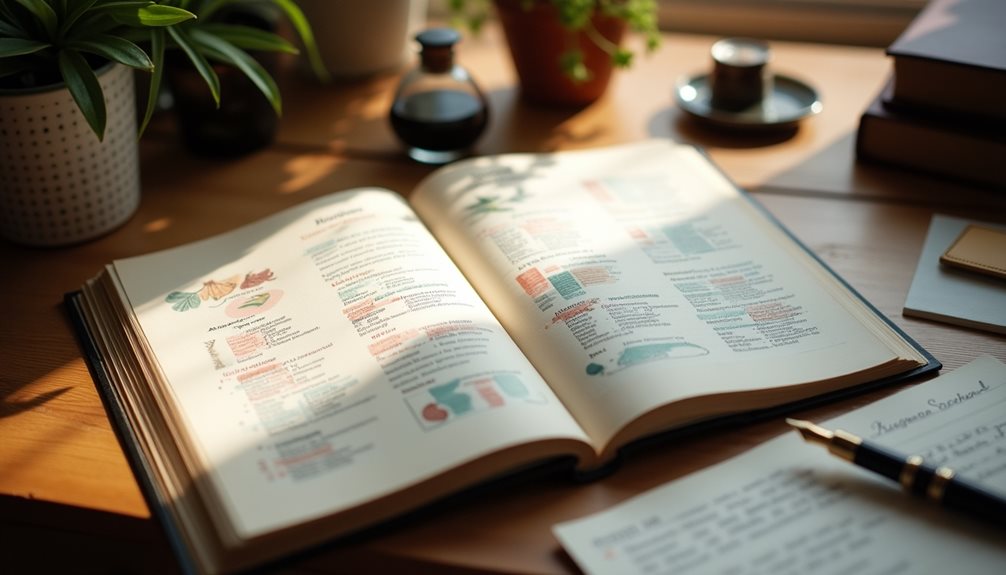The use of reflexive pronouns in Russian is a nuanced aspect of the language that warrants careful examination. These pronouns serve to illustrate actions directed at the subject itself, as well as reciprocal interactions between subjects. Understanding their forms and functions is essential for clarity in communication. However, misconceptions often cloud their effective use. Unpacking these complexities reveals a richer emotional landscape within Russian expressions, inviting further exploration into their practical applications.
Table of Contents
ToggleHow Russian Reflexive Pronouns Work

Reflexive pronouns in Russian are an important feature that helps speakers make clear when the subject and object of a verb are the same person or thing. The main reflexive pronoun in Russian is себя (pronounced seh-BYA), which roughly means “oneself.” In English, we use reflexive pronouns like “myself,” “yourself,” or “themselves,” but Russian uses just this one word, changing its form for grammar, not for gender or number.
What Is a Reflexive Pronoun?
A reflexive pronoun shows that the action of the verb is being done by the subject to itself. For example, in English: “He sees himself in the mirror.” In Russian, this would be Он видит себя в зеркале (On VEEd-eet seh-BYA v ZER-ka-le). Here, себя makes it clear that he is seeing his own reflection, not someone else.
Russian Reflexive Pronouns: Forms and Usage
The word себя changes its form depending on its role in the sentence (case), but it never changes for gender (male/female) or number (singular/plural). This is different from most other Russian pronouns. Here are the most common forms of себя:
- себя (seh-BYA) – used for most cases (accusative, genitive, prepositional)
- себе (seh-BYEH) – dative case (when something is done to oneself)
- собой (sa-BOY) – instrumental case (when someone does something with themselves)
Examples:
- Я люблю себя (Ya lyu-BLYU seh-BYA) – I love myself.
- Он заботится о себе (On za-BOH-teet-sya o seh-BYEH) – He takes care of himself.
- Она гордится собой (A-na gor-DEET-sya sa-BOY) – She is proud of herself.
Key Features of “Себя”
- It does not have a nominative case form because you can’t be both the subject and the object at the same time.
- It always refers back to the subject of the sentence.
- It can be used with any person: first person (I/we), second person (you), or third person (he/she/they).
Reflexive Verbs
Russian also has a special way to make verbs reflexive by adding the suffix -ся or -сь to a verb. For example:
- мыть (myt’) means “to wash”
- мыться (MYT’-sya) means “to wash oneself”
This suffix can sometimes take the place of using себя as a separate word.
Examples:
- Я умываюсь (Ya u-myv-A-yus’) – I am washing myself.
- Они готовятся к экзамену (Oni go-TO-vyat-sya k ek-ZA-me-nu) – They are getting themselves ready for the exam.
Reflexive Pronouns for Emphasis and Clarity
Using себя in a sentence can add emphasis or help avoid confusion about who is doing what to whom. For instance:
- Он видит его (On VEEd-eet ye-GO) – He sees him (meaning another person).
- Он видит себя (On VEEd-eet seh-BYA) – He sees himself.
Reciprocal Actions
While mainly used for self-directed actions, sometimes reflexive forms can show two people doing something to each other when used with words like друг друга (drug DRU-ga, “each other”). For example:
- Они уважают друг друга (Oni u-va-ZHA-yut drug DRU-ga) – They respect each other.
Common Phrases Using Reflexive Pronouns
- беречь себя (be-RYECH’ seh-BYA) – take care of oneself
- чувствовать себя хорошо/плохо (CHOOV-stvo-vat’ seh-BYA khara-SHO/PLO-kha) – to feel well/bad
- вести себя (ve-STEE seh-BYA) – to behave oneself
Mastering reflexive pronouns and reflexive verb forms is essential in Russian. They appear in everyday speech and writing, helping to clarify who is doing what in a sentence and letting speakers express subtle differences in meaning.
Common Misconceptions About Reflexive Pronouns
Many students learning Russian mistakenly believe that reflexive pronouns are used only for actions one does to oneself, similar to “myself” or “yourself” in English. However, the Russian reflexive pronoun ся (or its full form себя) has a broader range of uses, and misunderstandings can easily arise from a direct translation approach.
1. Reflexive Means Only “To Oneself”
While in English, reflexive pronouns like “myself” are typically for actions you do to yourself, Russian reflexive verbs often go beyond this. For example, the verb мыться (“to wash oneself”) fits the expectation, but reflexive forms also express actions that are done mutually or are simply intrinsic to the subject.
2. Not Just Physical Actions
Reflexive verbs in Russian are not limited to physical acts. They frequently describe emotional states or changes in condition:
- бояться (to be afraid)
- надеяться (to hope)
- гордиться (to be proud)
These do not always correspond to English reflexive verbs, yet they require the reflexive ending in Russian.
3. Many Verbs Are Reflexive by Nature
Some Russian verbs always appear in a reflexive form, and there is no equivalent non-reflexive version:
- казаться (to seem)
- нравиться (to please, to like)
- извиняться (to apologize)
Trying to translate these word-for-word into English often leads to confusion since the reflexive aspect doesn’t always carry over.
Key Usages of Reflexive Pronouns in Russian
- Indicating Mutual Actions:
With verbs like обниматься (to hug each other) or здороваться (to greet each other), the reflexive ending signals a shared action between two or more people. - Expressing Changes of State:
Verbs such as раздеваться (to undress oneself), улыбаться (to smile), and учиться (to study, to learn) use the reflexive to show a transformation or internal process. - Passive and Impersonal Constructions:
Reflexive forms can create passive meanings, as in книга читается легко (“the book reads easily”), or impersonal ones:- здесь не курят(ся) (“smoking is not allowed here”).
Useful Russian Phrases Related to Reflexivity
- Я чувствую себя хорошо. (I feel good.)
- Он гордится своими детьми. (He is proud of his children.)
- Мы встретились в парке. (We met each other in the park.)
- Это кажется невозможным. (It seems impossible.)
Understanding these nuances helps learners avoid common pitfalls and use reflexive forms more naturally, bringing them closer to fluency in Russian communication.
Practical Examples of Reflexive Pronouns in Use
Reflexive pronouns and reflexive verbs are essential in Russian, shaping how actions reflect back onto the subject. For English speakers, mastering these forms opens up more natural and nuanced conversation. Below is a deeper look at the topic, explanations, and additional examples to clarify usage.
How Reflexive Pronouns Work in Russian
In Russian, reflexive verbs typically end in -ся or -сь. These endings indicate that the subject is performing an action on themselves. Unlike English, where reflexive pronouns like “myself” or “yourself” are separate words, Russian attaches a suffix to the verb.
Expanded List of Everyday Scenarios
| Scenario | Reflexive Verb | Russian (Cyrillic) | Phonetic | Translation |
|---|---|---|---|---|
| Daily Routine | умываться | умываться | umyvat’sya | to wash oneself |
| Emotional State | радоваться | радоваться | radovat’sya | to rejoice (in something) |
| Personal Care | заботиться | заботиться | zabotit’sya | to take care (of oneself) |
| Self-Reflection | думать о себе | думать о себе | dumat’ o sebe | to think to oneself |
| Getting Dressed | одеваться | одеваться | odevat’sya | to get dressed |
| Introducing Oneself | представляться | представляться | predstavlyat’sya | to introduce oneself |
| Apologizing | извиняться | извиняться | izvinyat’sya | to apologize |
| Behaving | вести себя | вести себя | vesti sebya | to behave oneself |
| Preparing (oneself) | готовиться | готовиться | gotovit’sya | to prepare oneself |
| Hiding | прятаться | прятаться | pryatatsa | to hide oneself |
Common Reflexive Verbs and How They’re Formed
Russian reflexive verbs are formed by adding -ся (after consonants) or -сь (after vowels) to the infinitive. This can change the meaning of the verb entirely:
- мыть (myt’) — to wash
- мыться (myt’sya) — to wash oneself
- учить (uchit’) — to teach, to learn
- учиться (uchit’sya) — to study, to learn (referring to oneself)
Related Russian Terms
| Russian (Cyrillic) | Phonetic | English Definition |
|---|---|---|
| себя | sebya | oneself |
| сам/сама/само/сами | sam/sama/samo/sami | myself/yourself/himself/ourselves |
| друг друга | drug druga | each other |
| своим | svoim | by oneself (one’s own) |
| самостоятельно | samostoyatel’no | independently |
Key Points for Learners
- Reflexive pronouns often express actions done by the subject to themselves.
- The -ся ending is the main reflexive marker.
- Some verbs only exist in reflexive form and do not have a direct non-reflexive equivalent.
- Reflexive constructions are common in daily speech and writing.
By practicing these structures and recognizing the patterns, you’ll become more comfortable using reflexive pronouns and verbs in Russian.
Unlock the Power of Reflection in Russian!
Mastering Russian reflexive pronouns and verb forms doesn’t just help you avoid mistakes—it opens doors to a deeper, more natural way of expressing yourself. Whether you’re describing your daily routine, sharing feelings, or talking about interactions with others, reflexive constructions are everywhere in Russian.
By understanding not only how these forms work but also why they are used—whether for self-action, mutual action, or simply following Russian idiom—you’ll sound more authentic and confident. Practice with real-life examples, pay attention to context, and soon reflexive pronouns and verbs will feel as natural as saying “myself” or “each other” in English.
Frequently Asked Questions
How Do Reflexive Pronouns Differ From Regular Pronouns in Russian?
Reflexive pronouns in Russian signify actions performed by the subject upon themselves, contrasting with regular pronouns, which serve to replace or identify nouns. This distinction highlights the self-referential nature of reflexive forms in language.
Are There Regional Variations in Using Reflexive Pronouns?
Regional dialects exhibit distinct usage patterns of reflexive pronouns, reflecting variations in linguistic norms. These differences may influence meaning and sentence structure, highlighting the complexity of reflexive pronoun application across diverse Russian-speaking populations.
Can Reflexive Pronouns Be Used in Passive Constructions?
Reflexive pronouns can indeed be utilized in passive voice constructions, showcasing reflexive usage. This incorporation allows for nuanced meanings, emphasizing the subject’s role in the action, thereby enhancing clarity and expressiveness in the language.
What Are Common Mistakes Learners Make With Reflexive Pronouns?
Common errors with reflexive pronouns often stem from learner confusion regarding their functions and forms. Misapplication in sentences, incorrect placement, or overuse can lead to misunderstandings, hindering effective communication in the target language.
How Do Reflexive Pronouns Affect Verb Conjugation in Russian?
Reflexive pronouns in Russian influence verb forms by altering conjugation patterns. They often require specific endings, indicating the action’s return to the subject, thereby impacting the overall meaning and structure of the verb within sentences.



